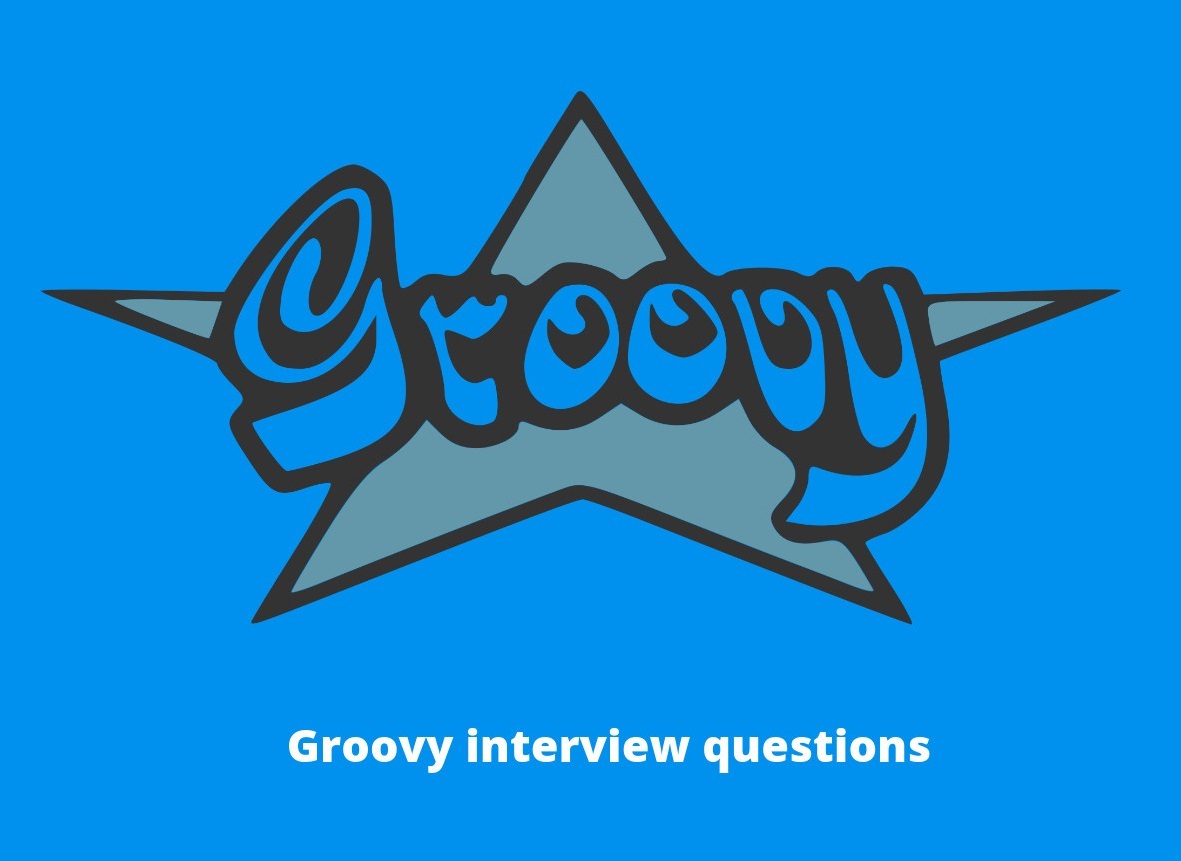Apache Groovy is an object-oriented programming language for the Java platform. It is developed by Guillaume Laforge (PMC Chair); Jochen Theodorou (Tech Lead); Paul King; Cedric Champeau and designed by James Strachan
Groovy Interview Questions

Download Groovy Interview Questions PDF
Below are the list of Best Groovy Interview Questions and Answers
Groovy is an object-oriented programming language which is used for Java Virtual Machine. It is a multi-faceted language for Java platform. It was designed by James Strachan in the year 2003. It is dynamic, powerful, and optionally typed with static compilation capability. Its syntax can be familiar and easy to learn. It has the ability to integrate smoothly with any java program. It is a domain specific language aimed at improving developer productivity. It is concise and with the help of this, powerful features including scripting capabilities can be delivered to your application.
Since it is an object-oriented programming language used for Java Virtual Machine, it is very useful. Some of the advantages of groovy are listed below:
- For all the Java programmers, it provides syntax similar to the syntax of Java language so it becomes easy to use it.
- Since it is based on Java, so it has a rich collection of Java libraries.
- It can easily integrate with your existing interface.
- It is completely object oriented so it becomes easy to use it.
- Reusable and assignable pieces of code is present in groovy.
- Operator overloading is also possible in this.
- Maps, arrays, ranges, and regular expressions can be literally declared.
- It possesses efficient object navigation.
Everything that has advantages has some limitations too. Similarly, groovy has some limitations too. Some of the limitations that groovy possesses are listed below:
- It can be slower than the other object-oriented programming languages.
- It might need memory more than that required by other languages.
- The start-up time of groovy requires improvement. It is not that frequent.
- For using groovy, you need to have enough knowledge of Java. Knowledge of Java is important because half of groovy is based on Java.
- It might take you some time to get used to the usual syntax and default typing.
- It consists of thin documentation.
The open and anonymous block of code that takes arguments returns a value and can be assigned to a variable is known as a closure in Groovy. It references the variables which are declared in its surrounding scope. We know that anonymous inner classes are not supported by Groovy. Inline listeners can be determined with the help of closures. In groovy, listener closures are used as listener adapters. In this only one method which is of interest is overridden.
Some of the features offered by groovy JDK are as follows:
- The collection of literals. The literal syntax and its initialization are natural and highly readable unlike java in which they are cumbersome and unpleasant.
- The Groovy Beans property. Although Java is based on the concept of JavaBeans as a structure, still it lacks a direct syntactic support. Whereas, groovy can declare a field as a property as trivial and can access it too.
- This feature was presented in groovy since its first release especially in the collection framework.
- GDK enhancements. Many operators for many of the classes and various additional methods have also been introduced by groovy.
Download Free : Groovy Interview Questions PDF
Latest Interview Questions-
Silverlight Interview Questions
-
Entity framework interview questions
-
LINQ Interview Questions
-
MVC Interview Questions
-
ADO.Net Interview Questions
-
VB.Net Interview Questions
-
Microservices Interview Questions
-
Power Bi Interview Questions
-
Core Java Interview Questions
-
Kotlin Interview Questions
-
JavaScript Interview Questions
-
Java collections Interview Questions
-
Automation Testing Interview Questions
-
Vue.js Interview Questions
-
Web Designing Interview Questions
-
PPC Interview Questions
-
Python Interview Questions
-
Objective C Interview Questions
-
Swift Interview Questions
-
Android Interview Questions
-
IOS Interview Questions
-
UI5 interview questions
-
Raspberry Pi Interview Questions
-
IoT Interview Questions
-
HTML Interview Questions
-
Tailwind CSS Interview Questions
-
Flutter Interview Questions
-
IONIC Framework Interview Questions
-
Solidity Interview Questions
-
React Js Interview Questions
Subscribe Our NewsLetter
Never Miss an Articles from us.
